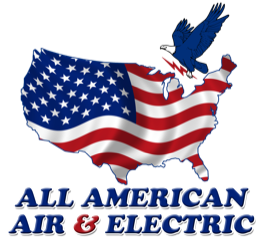Florida residents are not strangers to wildfires. In January through May of this year, over 2,000 wildfires have burned over 100,000 acres in Florida.
These wildfires don’t just affect residents immediately next to the burning site. Wildfires leave thick, heavy smoke behind. The smoke lingers in the air and significantly lowers the air quality in the surrounding areas.
Just this month, three Florida counties (Hillsborough, Pinellas, and Sarasota counties) issued air-quality advisories. Here’s why Florida wildfires are a problem and what you can do.
How Do Florida Wildfires Affect You?
The smoke left behind by wildfires significantly lowers air quality for miles around. Recently, news outlets reported that Fort Lauderdale had an air-quality index number of 105. This number is significantly worse than the usual 30.
This reduced air quality makes it harder for people to breathe while they’re outdoors. The low-quality air can be especially dangerous for children, elderly people, and those who have breathing-related health conditions like pulmonary disease and asthma. In fact, the poor air can exacerbate existing health conditions.
What Should You Do?
Unfortunately, there’s no way to instantaneously clean Florida’s air after a wildfire. However, there are several things you can do to protect yourself from poor air quality.
Keep an Eye on Air Conditions
The Florida Department of Environmental Protection (FDEP) monitors Florida air and provides up-to-date information about air conditions. Check their website to see any warnings about the air quality in your area.
Stay Indoors
Limit your time outdoors during times of poor air quality. You should also avoid strenuous outdoor activities like running and biking. Instead, exercise in your home or at the gym. While indoors, shut your windows and doors and turn on your air conditioning.
Encourage your elderly and young family members to stay inside as well. You may need to cancel sports practices and other outdoor activities for your children.
Wear a Mask
If you must spend some time outdoors, wear a mask so you don’t breathe in as many contaminants. You could also place a handkerchief or scarf over your mouth to block dangerous substances.
Use an Air-Purification System
You don’t want to have to deal with both polluted outdoor air and polluted indoor air at the same time. Air-purification systems filter airborne mold, mildew, pollen, bacteria, and viruses to keep your indoor air clean. UV light provides additional protection by sterilizing microscopic contaminants.
Talk to an HVAC specialist about installing an air-purification system in your home.
Get Your Ducts Cleaned and Your A/C Unit Updated
An HVAC technician can improve your indoor air quality by removing built-up dust and contaminants from your ducts.
Also, choose an air conditioning system with a re-circulation option. You don’t want your system to draw air from the polluted outdoors.
Protect Yourself While Driving
Even if you’re inside a car, you can still get affected by air pollution. If you’re driving through an area with poor air quality, turn on your air conditioning and set it to re-circulation mode. This causes your car to re-use the air from inside the cabin rather than use the outside air.
Don’t Contribute to Air Pollution
There are many ways that we can cut back on the ways we personally contribute to air pollution. One is to use less electricity. The most significant way to do that is to switch to solar power and other alternative energy sources. If you’re not ready for this large of a step, you could simply turn off lights in rooms you’re not using.
Another way to protect the air is to carpool or use public transportation whenever possible. Using cars is the biggest way we pollute the air every day. You can also avoid polluting the air by not burning trash and firewood. Finally, avoid smoking and limit your use of candles and fireplaces.
Watch for Health Problems in Yourself and Others
If you’re dealing with continual poor air quality, you may experience health problems like:
- Difficulty breathing
- Chest tightness
- Wheezing and coughing
- Chest pain
- Eye, throat, and nose irritation
- Fatigue
If you or someone else is dealing with these problems, see a doctor right away.
Long-term exposure to polluted air can decrease lung function and can even cause you to develop diseases like asthma, emphysema, and bronchitis. If you live in an area affected by wildfires, make sure you’re getting your health continually monitored by a medical professional.
As you can see, Florida wildfires can have a huge impact on your daily life. Follow these steps to protect yourself from poor air quality amidst Florida’s often contaminated air.
If you would like to have an air-purification system installed in your home, call All American Air & Electric. Our advanced air-purification systems filter out contaminants and even increase the lifespan of your air conditioning unit, so call us today.


